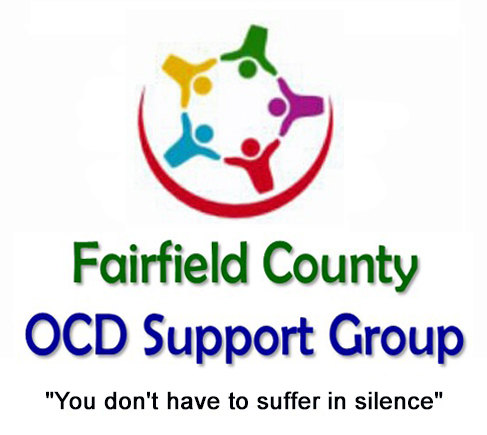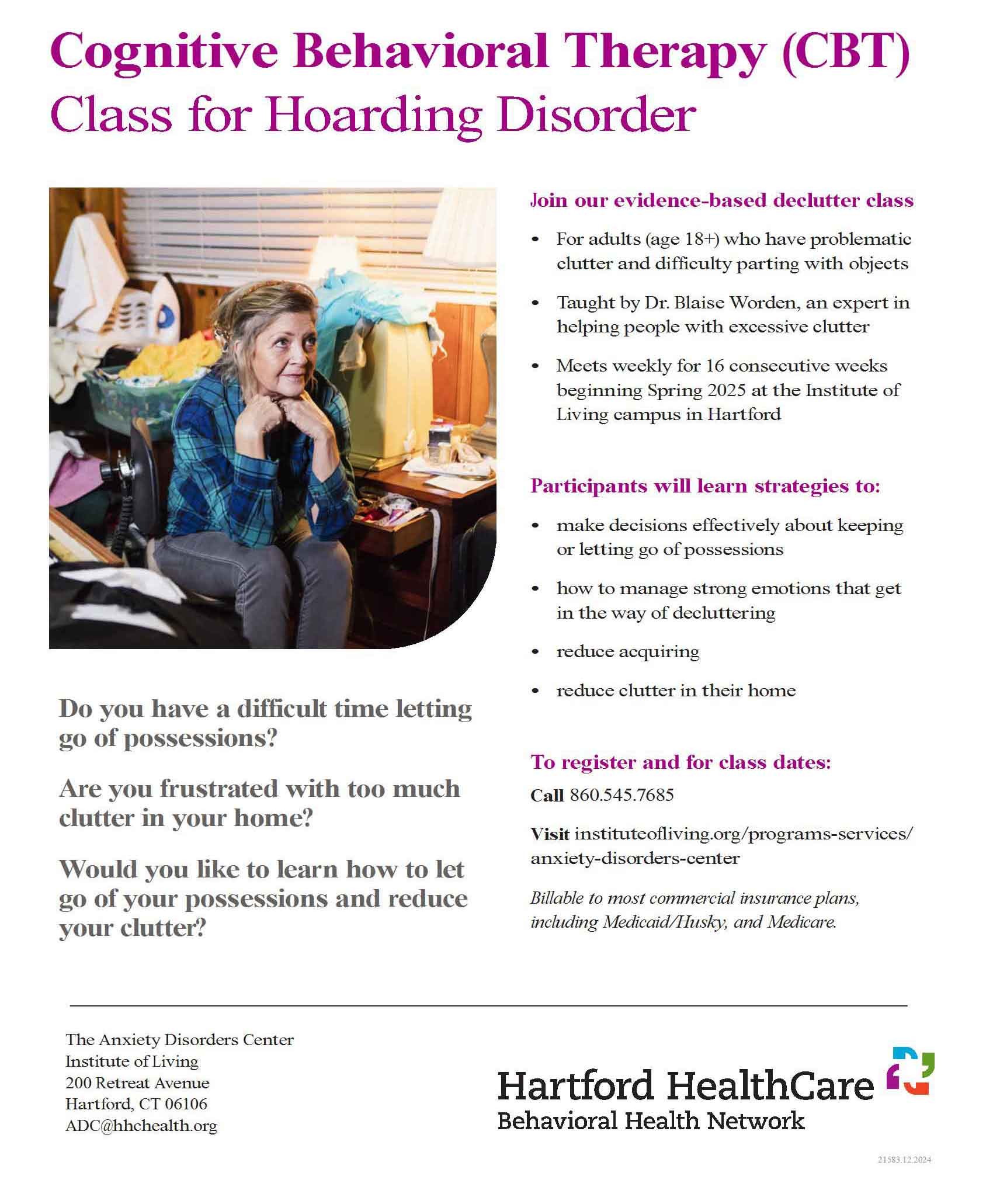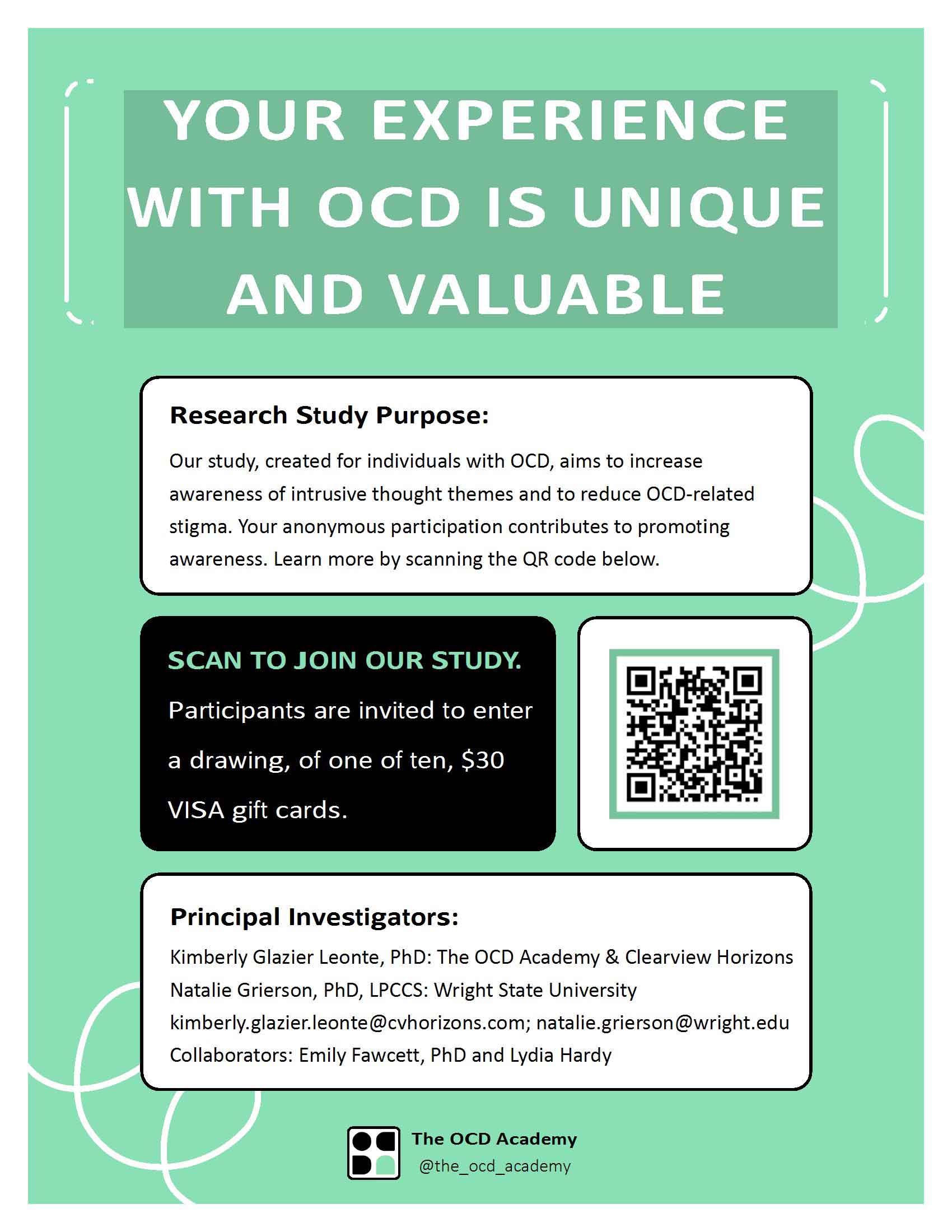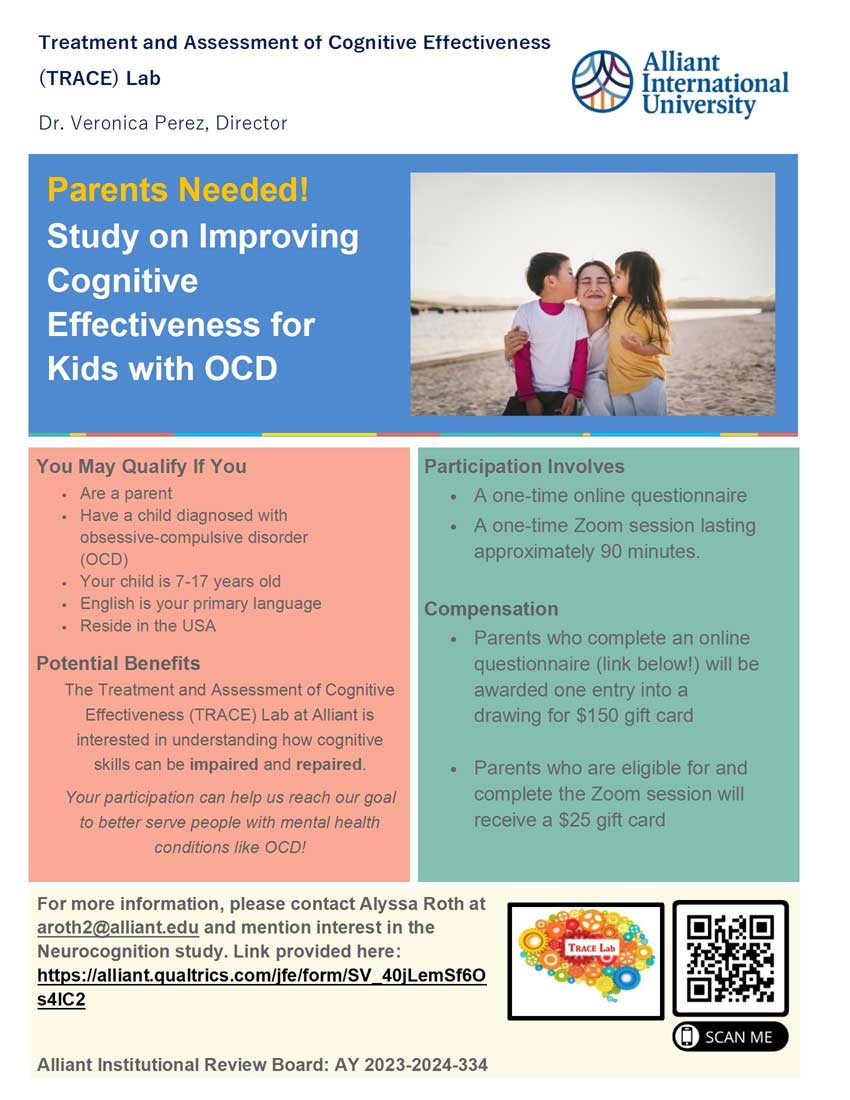
Current Events & Studies
 The Online OCD Camp sponsored by Mclean OCD Institute is a weekend full of interactive sessions, educational activities, and FUN for youth aged 6-17 who have OCD or a sibling with OCD.
The Online OCD Camp sponsored by Mclean OCD Institute is a weekend full of interactive sessions, educational activities, and FUN for youth aged 6-17 who have OCD or a sibling with OCD.In addition to programming for elementary, middle, and high schoolers, OCD Camp also offers support for caregivers and families, including strategies and education about caring for a child with OCD and socialization with families with similar experiences.
You can choose from four audience tracks:
- Elementary Schoolers (Suggested Ages: 6–11)
- Middle Schoolers (Suggested Ages: 12–14)
- High Schoolers (Suggested Ages: 15–17)
- Parents and Caregivers

What do they need from you to participate?
1. Genetic Samples: They will obtain a blood sample and saliva sample for genetic analysis from the child and both parents. If a family member is unable to come to Yale University in person for a blood draw, they can send someone to your house to have this done at a convenient time for you.
2. Questionnaire: They will ask you to complete standardized questionnaires asking about how you and your child think, feel, and behave as well as questions about your medical and psychiatric history. These questionnaires can be completed from home, and they can assist with any questions or concerns.
3. Interview: Once you have completed the questionnaires and returned them to Yale, they will review them and set up a brief 15-20-minute phone call to review your responses.
The studies require participation from a child and both biological parents. Specifically, the Study Center is searching for families where the child (no age-restriction) is diagnosed with OCD/TS/Trichotillomania while the parents do not have the history. The studies can be done remotely and participation will be compensated with a $100 Amazon gift card for the family.
If you have further questions or are interested in participating in the study, please contact The Yale School of Medicine at findgenes@yale.edu, call them at (203)-677-0842, or click here to complete their study interest survey.
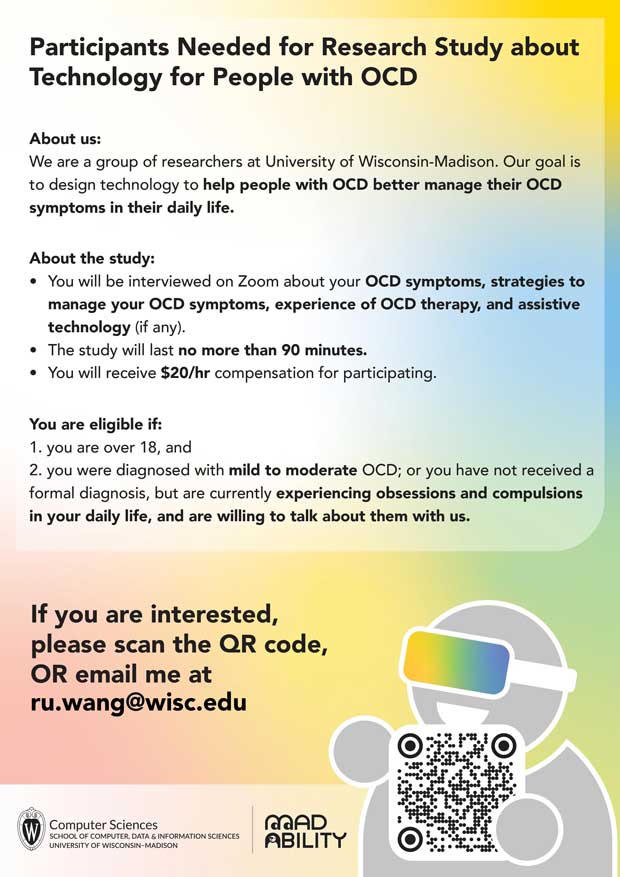
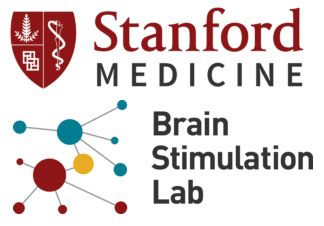
Because this is an invasive clinical trial, they are enrolling patients with markers of severe OCD with a high degree of treatment resistance. Participants will need to meet the following criteria:
- Between the ages of 22 and 75.
- Have had OCD for more than 5 years.
- OCD is their primary psychiatric diagnosis.
- No substance use disorder in the last 2 years.
- No lifetime history of bipolar disorder or a psychotic disorder.
- Severe OCD symptoms.
- Failure to respond to multiple trials of medications, including two SSRI trials at maximum FDA approved dose, a trial of clomipramine, and at least 1 trial of augmentation with an antipsychotic medication.
- Failure to respond to Exposure and Response Prevention (ERP).
- No history of severe head trauma, implanted devices, or metal in the head.
- Does not plan to become pregnant in the next 3 years.
If you or someone you know would be a good candidate for this study, please reach out to Stanford Medicine at ocddbsstudy@stanford.edu.
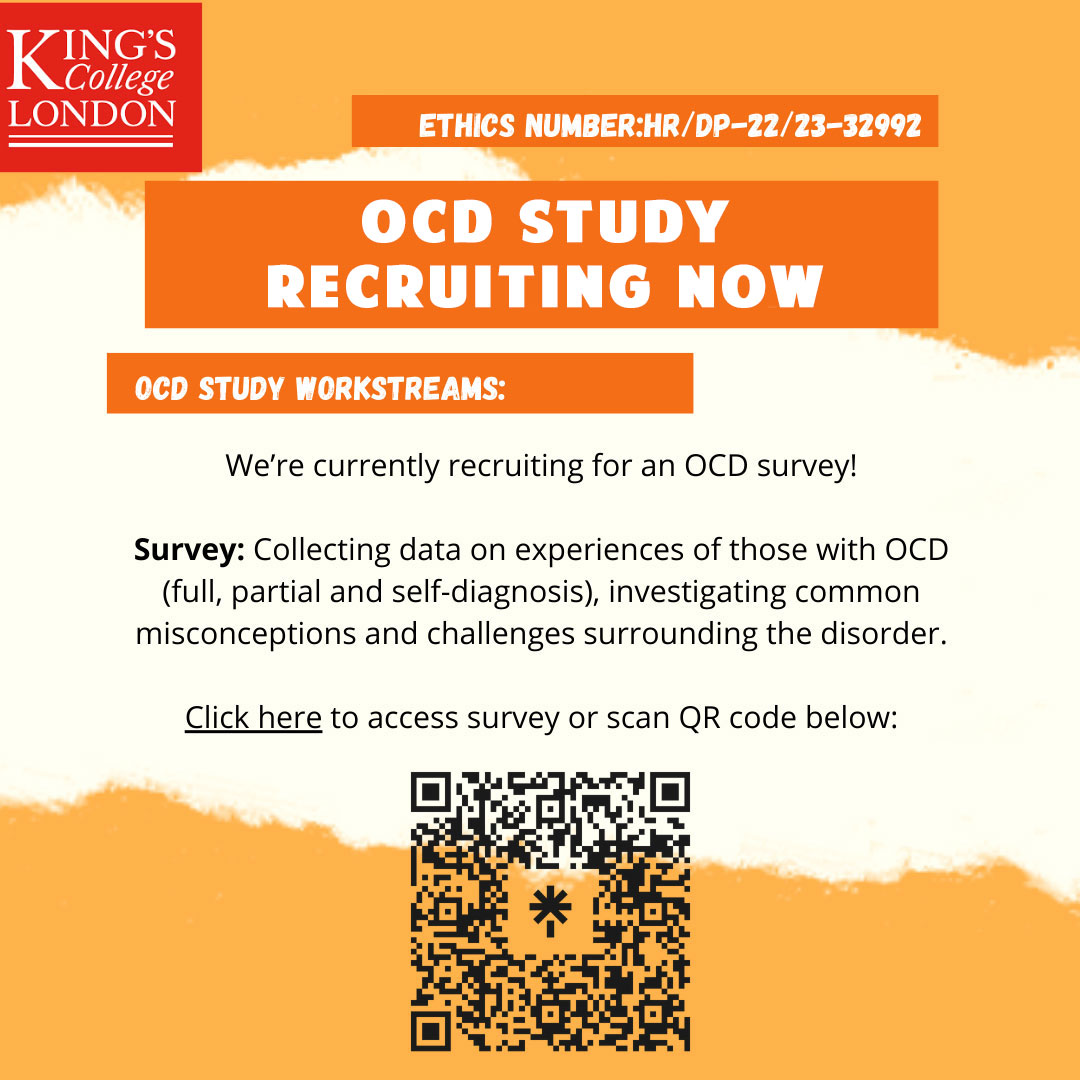
Click here to download the survey's information sheet.

SUPPORTING OUR FAMILIES: GUIDANCE FOR PARENTS, FAMILY, AND CAREGIVERS OF THOSE WITH OCD (Posted November 8, 2023)
IOCDF is so happy to announce the launch of its new livestream series, Supporting Our Families, with a premiere air date of Thursday, November 9th at 7pm ET (4pm PT) on YouTube!
This livestream event will be an interactive discussion dedicated to parents and loved ones of individuals of all ages living with OCD. Join JACK Mental Health Advocacy (MHA) founder, IOCDF Advocate, and mom Kim Vincenty, along with parent and IOCDF Advocate Chris Baier, and IOCDF experts, Natasha Daniels, LCSW, and Jon Hershfield, MFT as they explore the topics that are important to you.
If you have questions about accommodating and reassurance, finding the right therapist, dealing with treatment resistance, or the many other unique issues facing parents of those with OCD, this event is for you.
Mark your calendars and we hope to see you there!
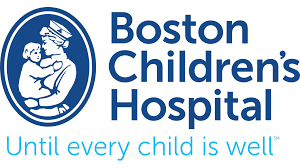
Inclusion Criteria:
- Individuals who are age 6 to 17 with obsessive-compulsive disorder, chronic tic disorder, or are healthy controls without any neurological conditions.
- Parents or legal guardians willing to provide informed consent.
- Individuals who do not speak English
- Patients with bipolar disorder, psychotic disorders, substance use disorders, functional neurologic disorders, Autism spectrum disorder, moderate to severe depression not in remission within the past year, eating disorders, or are pregnant.
- Patients with a prior diagnosis of Pediatric Autoimmune Neuropsychiatric Disorders Associated with Streptococcal infections (PANDAS) or Pediatric Acute-onset Neuropsychiatric Syndrome (PANS).
- Patients with co-morbid GI conditions including obesity, celiac disease, Crohn’s disease, irritable bowel syndrome, abdominal migraines, gastrointestinal cancers, gastric emptying disorders, and peptic ulcer disease.
- Patients who have had medication changes in the 4 weeks prior to either stool collection time point.
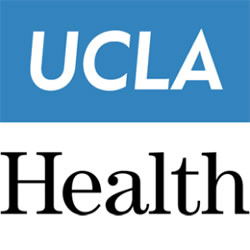
Download their IRB-approved study information sheet, as well as the flyer with a QR code. Upon scanning the QR code, interested participants will be prompted to input their name and email. After completing this form, you will receive a separate email with a personalized and secure link to the survey.
Upon successful completion of the survey and quality assurance checks, each participant will receive a $10 Amazon e-gift card.
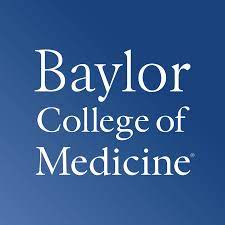
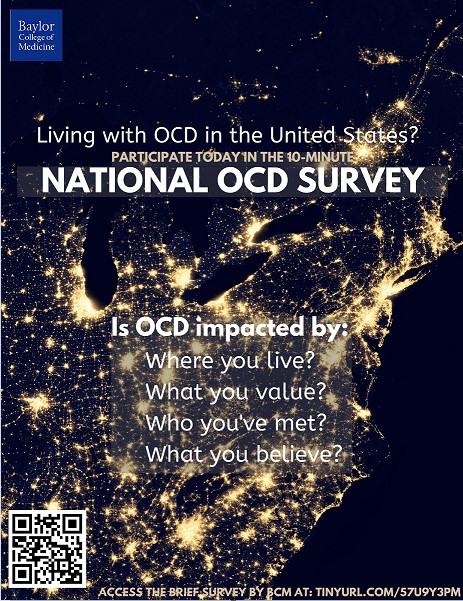
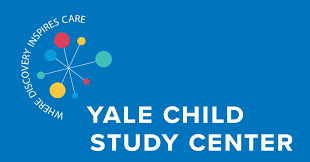
The purpose of these studies is to identify the genetic factors that cause these disorders using a family-based approach. To date, the Study Center has discovered five genes and it believes there are about 300-400 more (news stories here and here). It hopes that these discoveries will lead to the development of new treatments to help alleviate the suffering, but it will need the participation of many families in order to make this happen.
The studies require participation from a child and both biological parents. Specifically, the Study Center is searching for families where the child (no age-restriction) is diagnosed with OCD/TS/Trichotillomania while the parents do not have the history. The studies can be done remotely and participation will be compensated with a $100 Amazon gift card for the family.
For more information and how to participate in these studies, click on a link listed below to download a PDF document regarding the particular study you are interested in:
- OCD Genetics Study
- TIC Genetics: Tourette International Collaborative Genetics Study
- Trichotillomania and Other BFRBs Sequencing Study
You can also email Ana Bok, Postgraduate Research Associate at Yale School of Medicine, Yale Child Study Center at findgenes@yale.edu.

Participation will last approximately 45 minutes (25 minutes for parent questionnaires and 20 minutes for child questionnaires) and will involve questions about your child and families' demographic and medical/psychiatric history, followed by questions regarding your child’s obsessive-compulsive symptom severity, associated impairment, family accommodation, internalizing and externalizing symptoms, anxiety sensitivity, sleep-wake profiles (i.e., chronotype), sleep disturbance, and sleep patterns. You will then be prompted to ask your child to complete the remaining portion of the survey in private, unless assistance is needed. Children will answer questions regarding their OCD symptoms, associated impairment, sleep-wake profiles (i.e., chronotype), sleep disturbance, sleep patterns, externalizing and internalizing symptoms, and emotion regulation.
You will have a 1 in 20 chance of receiving a $25 Amazon e-gift card for participating in the survey. Upon survey completion, your child will be redirected to a separate survey link that is not connected to survey answers, where they will be prompted to enter your email address.
You do not need to complete the survey in order to enter the lottery.
Visit the following link to read more information about the survey and participate: https://uclahs.az1.qualtrics.com/jfe/form/SV_bEhl97GxW94xQXk
Please contact Valerie Swisher at VSwisher@mednet.ucla.edu for more information

Learn more about IOCDF events, including:
- In-person & Virtual Conferences
- Virtual Livestream Programming
- 1 Million Steps 4 OCD Walk
- Trainings for Mental Health Professionals

IOCDF CONFERENCE SERIES (Posted October 22, 2022)
IOCDF is thrilled to offer a variety of conferences — both in-person and virtual — for all those impacted by OCD and related disorders. They encourage the global network of people with live experienced, family members and supporters, mental health professionals, researchers, educators, and students to join them for community, collaboration, and education.
- Between the ages of 18 and 40 years old
- Diagnosed with either OCD or TS
For more information, please contact Hooker Research Group staff at
617-643-7811
OR
imagingstudy@mgh.harvard.edu
Download a flyer with more information
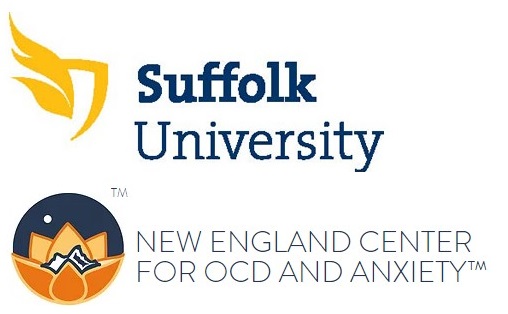
They are looking to recruit youth participants, 13-17 years old, who have tried at least two sessions of therapy for OCD. The study can be completed entirely online and will take participants approximately 35 minutes to complete. For their time, youth participants will receive a self-help book for teens with OCD and a chance to win one of two $100 Visa gift cards in a raffle at the end of the recruitment period as compensation.
If you are interested or have questions call, text, or email the study team:
Katrina Daigle, MA, MS
Study Co-Investigator
kdaigle@suffolk.edu
617-394-8876
Download a flyer containing more information.
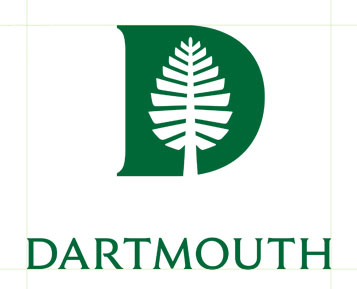
The purpose of this study is to more deeply understand agency. The goal is to characterize the effects of different neuropsychiatric conditions on individuals’ agency so they can help patients make more informed decisions about treatments.
Your responses will help them to create a test that can be used to track how patients' agency changes (either improves or gets worse) and how it is affected by different treatment options.
Who can participate?
Individuals 18 or older, with no history of dementia, recent diagnosis of a reading disability, at least an 8th grade English reading level, and no intellectual disability.
What will be asked of you?
You will fill out an online survey with approximately 170-200 questions, it will take about 35-45 minutes
To thank you for your time, you will have the option to be entered into a monthly raffle for a $150 Amazon gift card.
If you would like to participate:
1. Send an email to Ashley Walton at: AgencyLabProject1@dartmouth.edu.
2. You will receive a reply email that includes the link to the online survey.
*The information collected will be maintained anonymously, and cannot be linked back to you.
Download a flyer with all the information.
The link to the survey is:
https://dartmouth.co1.qualtrics.com/
jfe/form/SV_5o6JEnCiAj3xtZk.

If you are interested in participating:
Please visit Kent State's webpage at https://www.clinicalaffectivesciencelab.com/participate to find the link to the study survey under Emotion and Cognition in OCD. You can also download a flyer containing information about the study.
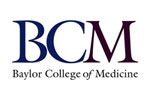
All procedures are being conducted remotely, and the duration of participation is several hours over 2 assessments. Participation includes a clinical interview over Zoom, and bio-behavioral tasks done online. Patients will be compensated up to $120.
For more information, please contact Jane Clinger at email misophonia@bcm.edu or call 713-798-1916. Download a flyer regarding the study.
The Massachusetts General Hospital is currently recruiting for a new research study that will use a MR-PET scanner to examine the brains of adults with Obsessive-Compulsive Disorder or Tourette Syndrome. The study will include two visits at the Martinos Center for Biomedical Imaging in Boston, MA. Participants will be compensated up to $200 for their time.
Participants must be:
- Between the ages of 18 and 40 years old
- Diagnosed with either OCD or TS
For more information, please contact Hooker Research Group staff at:
617-643-7811
OR
imagingstudy@mgh.harvard.edu
Disclaimer: Fairfield County OCD Support Group is not affiliated with nor endorsing this project.

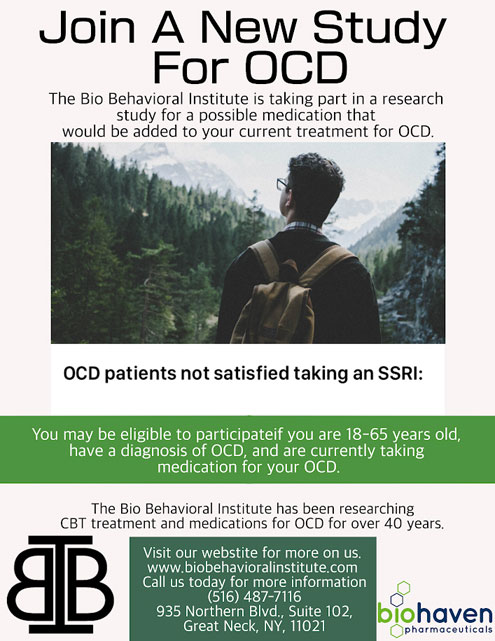
You may be eligible to participate if:
- You are between 18-65 years old.
- Have been diagnosed with or may have OCD.
- You are currrently taking a medication for OCD.
Bio Behavioral Institute
935 Northern Blvd., Suite 102
Great Neck, NY 11021
Download a flyer containing all information.
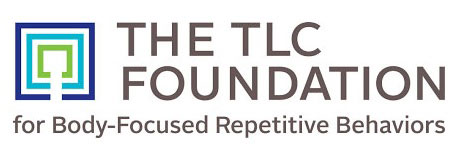
You can be an important part of advancing the knowledge of body-focused repetitive behaviors by participating in a research study. Click here for more information.

You are eligible if you are age 18-75, have OCD, and are fluent in the English language.
Link to the study: alliant.qualtrics.com/jfe/form/SV_aay03Hys2dN94Rn.
Find them on Facebook at https://www.facebook.com/ucsdocd.researchprogram.
Click here to download a flyer containing more details regarding the study.

ELIGIBILITY:
- 7 years of age old or older.
- Have symptoms or a diagnosis of Obsessive Compulsive Disorder and Related Disorders (Hoarding Disorder, Body Dysmorphic Disorder, Hair Pulling Disorder/Trichotillomania, and Skin Picking Disorder/Excoriation Disorder).
- Complete a screening questionnaire on personal and family health history.
- Be interviewed by a clinician about your symptoms.
- Give a small blood sample (about 3 tablespoons).
- Be compensated for your time and effort.
Email: InstituteforGenomicHealth@downstate.edu
Phone: 718-270-8254
All inquiries are confidential
Download a flyer containing all information.

Dr. Pittenger explained that the clinic currently has a range of studies running, running the gamut from cognitive testing to neuroimaging to pharmacological and non-pharmacological treatment studies.
He especially highlighted a new treatment study currently being conducted for adults with refractory OCD. The clinic has been studying the FDA-approved drug riluzole for refractory OCD for over a decade. It is now partnering with a local pharmaceutical startup, BioHaven (led by Yale’s own Vlad Coric), to test the efficacy of a riluzole prodrug (trigriluzole) that has better pharmacokinetics and tolerability than riluzole itself.
Patients for this study must have a diagnosis of OCD that is their primary psychiatric problem and must be stably medicated on an SSRI or clomipramine. Certain other antidepressants are permitted, as is stable (but not new) therapy and low-dose benzodiazepine use. The study consists of a placebo-controlled, blinded 12-week treatment phase, followed by an optional 48-week open-label continuation phase.
There are several features of this study that may make it more attractive to patients than a typical industry-sponsored drug study. First, trigriluzole is converted into riluzole in the body, and we know a great deal about riluzole’s tolerability. The clinic also believes, based on its published research, that riluzole helps some individuals with refractory OCD. So the new drug, trigriluzole, is much less of an unknown than many novel drugs in pharmaceutical studies. Second, because of the open-label follow-up phase, everyone who enters the study has an opportunity to try the new drug. Third, since the drug’s mechanism is the same as that of riluzole, patients who get some clinical benefit during the trial can continue treatment (with rilzuole) without interruption, even if there is a delay in getting the new drug approved by the FDA.
Interested patients who would like to participate in this exciting trial can contact Dr. Pittenger by email at christopher.pittenger@yale.edu.

For more information, click here.

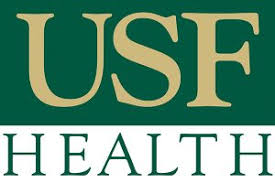
If this is the case, you may be eligible to participate in a study exploring familial relationships in adults with OCD. As a result of the study, we hope to better understand the impacts of OCD on family life, and to shed light on specific familial issues relative to OCD.
Participation in the study includes a 15- to 30- minute interview, which may be conducted in person or through Skype. You will also be asked to complete a series of online questionnaires about your thoughts, feelings, behaviors, and your romantic and/or parent-child relationships. The whole procedure should take between 35 and 90 minutes.
To be eligible for this study, you must be 18 or over, have a primary diagnosis of OCD, and either (a) be in a romantic relationship or have been in a relationship in the last six months, (b) have at least one child aged between 6 and 17 years old with whom you have regular contact, or (c) both.
This study is being conducted by Dr. Eric Storch, Ph.D. at the Rothman Center for Pediatric Neuropsychiatry, USF (University of South Florida) For further information please contact the study coordinator, Dr. Valerie L.B. Ariza at valerielabui@health.usf.edu or (727) 898-7451.




